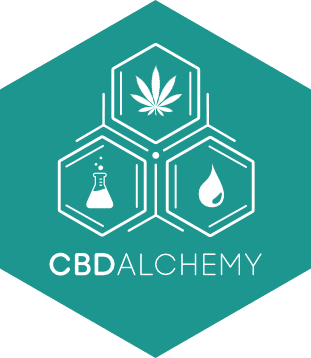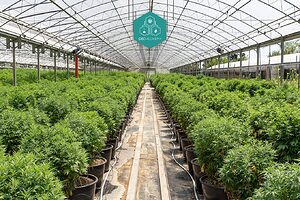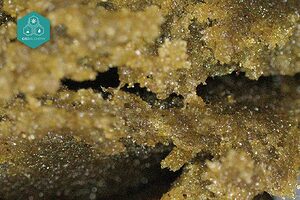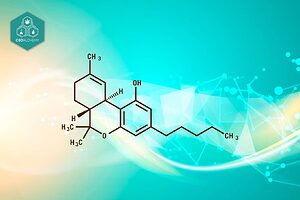- What is Hemp? Understanding the Plant and Its History
- Nutritional Benefits of Hemp Seeds and Hemp Oil
- Industrial Applications of Hemp Fiber
- Hemp Oil: Uses in Health and Wellness
- Skincare and Cosmetics: The Role of Hemp Oil
- Environmental Benefits of Hemp Cultivation
- Economic Benefits of Hemp Cultivation and Use
- Frequently Asked Questions – hemp what is it used for
- What exactly is hemp and how does it differ from marijuana?
- Can you tell me about the nutritional benefits of hemp seeds?
- How can I incorporate hemp seeds into my daily meals?
- What health benefits might I get from eating hemp seeds and using hemp seed oil?
- How is hemp fiber being used in the textile industry?
- What’s the difference between hemp seed oil and CBD oil?
- How are people using industrial hemp in construction?
- What are the environmental perks of growing hemp?
- How is the food industry using hemp?
- What’s happening in the hemp market right now?
Hemp has a long history and an even longer future and is now capturing industries and consumers attention. Let’s get into the world of hemp and discover all the uses from ancient to modern. This guide will answer the question hemp: what’s it used for? and look at the many uses of hemp and hemp oil across all industries.
What is Hemp? Understanding the Plant and Its History
What is Hemp and How is it different to Marijuana?
Hemp, scientifically known as Cannabis sativa L., is a versatile plant that has been grown for thousands of years. While it’s from the same species as marijuana, hemp is different in its composition and use. The main difference is the concentration of tetrahydrocannabinol (THC), the psychoactive compound in cannabis plants. Hemp has less than 0.3% THC, it’s non-intoxicating, while marijuana has much higher levels of THC. This low THC content is what makes hemp legal and all the uses of it.
In the US the 2018 Farm Bill legalized the growth of industrial hemp, defining it as cannabis plants with 0.3% or less THC on a dry weight basis. This opened the door for widespread hemp growth and research and now we see a flood of hemp products and innovations.Hemp is fast growing, requires minimal water and no pesticides, it’s an environmentally friendly crop. The plant has several parts, each with its own uses:
- Hemp seeds: Nutrient-rich and used for food and oil production
- Hemp fiber: Derived from the outer part of the stalk and used in textiles and industrial applications
- Hemp hurds: The woody core of the stalk, used in construction and paper production
- Hemp leaves and flowers: Used for extracting cannabinoids like CBD
A Brief History of Hemp Cultivation and Use
Hemp’s history is as rich and diverse as its uses. The plant has been cultivated for over 10,000 years, with evidence of its use dating back to ancient civilizations in China, Egypt, and Mesopotamia. Throughout history, hemp has played a crucial role in various aspects of human life:
- Ancient China: Hemp was used for making paper, clothing, and rope. The oldest known piece of hemp fabric dates back to around 8,000 BCE.
- Medieval Europe: Hemp was a staple crop, used for making sails, rigging, and clothing. It was so valuable that King Henry VIII mandated its cultivation in England in 1533.
- Colonial America: Hemp was widely grown and used for making textiles, paper, and rope. The Declaration of Independence was drafted on hemp paper.
- World War II: The U.S. government encouraged hemp cultivation with the “Hemp for Victory” campaign to support the war effort.
Despite its long history of use, hemp faced significant challenges in the 20th century. The Marihuana Tax Act of 1937 in the United States effectively banned hemp cultivation, lumping it together with marijuana. This ban lasted until the recent resurgence of interest in hemp’s potential, culminating in its legalization under the 2018 Farm Bill. Today, hemp is experiencing a renaissance, with renewed interest in its traditional uses and exciting new applications being discovered. From sustainable building materials to cutting-edge health products, hemp is once again proving its versatility and value in the modern world.
Nutritional Benefits of Hemp Seeds and Hemp Oil
Essential Nutrients Found in Hemp Seeds
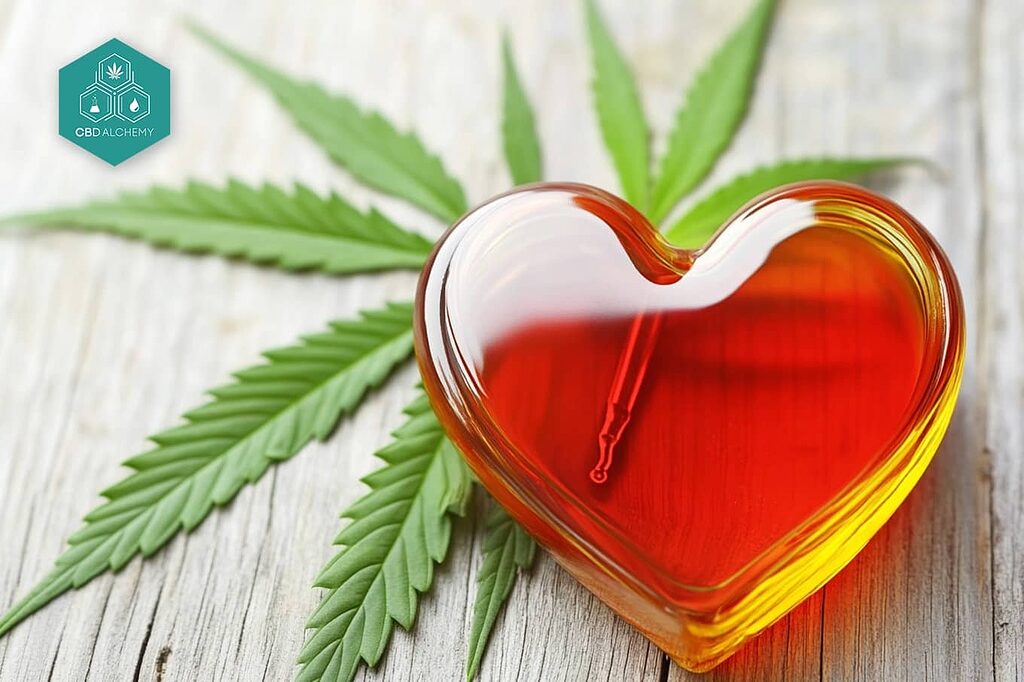
Hemp seeds, often referred to as “hemp hearts” when hulled hemp seeds, are a nutritional powerhouse packed with essential nutrients. These small seeds offer a complete protein profile, containing all nine essential amino acids that the human body cannot produce on its own. This makes hemp seeds an excellent protein source, especially for vegetarians and vegans. The high protein content and digestibility of hemp seed protein make it a superior choice compared to other plant-based proteins like soy.
The nutritional profile of hemp seeds is impressive:
- Protein: Hemp seeds contain about 25% protein by weight, comparable to beef and lamb. A 30-gram serving (about 3 tablespoons) provides about 9.5 grams of protein.
- Healthy Fats: Rich in omega-3 and omega-6 fatty acids, with an ideal 3:1 ratio of omega-6 to omega-3, which is considered optimal for human health.
- Fiber: Whole hemp seeds are a good source of both soluble and insoluble fiber, supporting digestive health.
- Vitamins and Minerals: Hemp seeds are rich in vitamin E, phosphorus, potassium, sodium, magnesium, sulfur, calcium, iron, and zinc.
One of the standout nutritional features of hemp seeds is their fatty acid profile. They are particularly rich in two essential fatty acids: linoleic acid (omega-6) and alpha-linolenic acid (omega-3). Additionally, hemp seeds contain gamma-linolenic acid (GLA), a beneficial omega-6 fatty acid.
Health Benefits of Incorporating Hemp into Your Diet
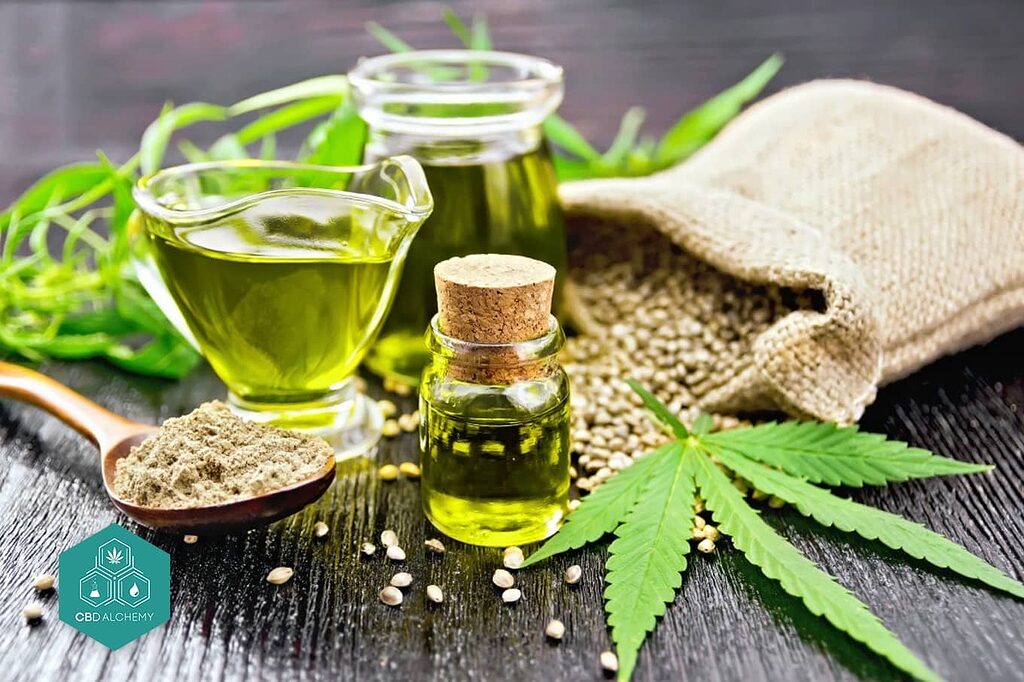
The unique nutritional composition of hemp seeds, hemp oils, and hemp oil translates into numerous health benefits:
- Heart Health: The omega-3 fatty acids in hemp seeds and hemp oils may help reduce the risk of heart disease by lowering blood pressure, reducing cholesterol, and decreasing the risk of blood clots.
- Reduced Inflammation: The GLA content in hemp seeds has anti-inflammatory effects, which may benefit people with conditions like arthritis and heart disease.
- Skin Health: The balanced fatty acid profile of hemp seeds and hemp oils can contribute to healthier skin and may help improve symptoms of skin conditions like eczema.
- Brain Function: Omega-3 fatty acids are crucial for brain health and may help protect against age-related cognitive decline.
- Digestive Health: The fiber content in hemp seeds can promote digestive health and regularity.
- Hormone Balance: GLA may help balance hormones and reduce symptoms of PMS.
- Weight Management: The combination of protein and fiber in hemp seeds can help promote feelings of fullness, potentially aiding in weight management.
Incorporating hemp into your diet is easy and versatile. Hemp seeds can be sprinkled on salads, mixed into smoothies, or used in baking. Hemp oil, with its nutty flavor, makes an excellent addition to salad dressings or as a finishing oil for dishes. However, it’s important to note that hemp oil should not be used for cooking at high temperatures, as heat can destroy its beneficial nutrients. As with any dietary change, it’s always advisable to consult with a healthcare professional, especially if you have any existing health conditions or are taking medications.
Food and Beverage Applications of Hemp
Hemp is a versatile crop that can be used in a variety of food and beverage applications. Hemp seeds, in particular, are a nutritious and versatile ingredient that can be used in a range of products, from baked goods to beverages.
One of the most popular uses of hemp seeds is as a nutritional supplement. Hemp seeds are a rich source of protein, essential fatty acids, and fiber, making them an excellent addition to smoothies, salads, and other dishes. Hemp seed oil, which is extracted from the seeds, is also a popular ingredient in cooking and can be used as a finishing oil for dishes or as a base for salad dressings.
Hemp is also being used in the production of plant-based milk alternatives, such as hemp milk, which is a popular dairy-free option for those with lactose intolerance or preferences. Hemp milk is made by blending hemp seeds with water and straining out the solids, resulting in a creamy and nutritious beverage.
In addition to its use in milk alternatives, hemp is also being used in the production of hemp-based protein powders, which are popular among athletes and fitness enthusiasts. Hemp protein powder is made by grinding hemp seeds into a fine powder and can be used as a supplement to support muscle growth and recovery.
Overall, hemp is a versatile crop that can be used in a variety of food and beverage applications, from nutritional supplements to plant-based milk alternatives and protein powders.
Industrial Applications of Hemp Fiber
Textiles and Fabrics Made from Hemp
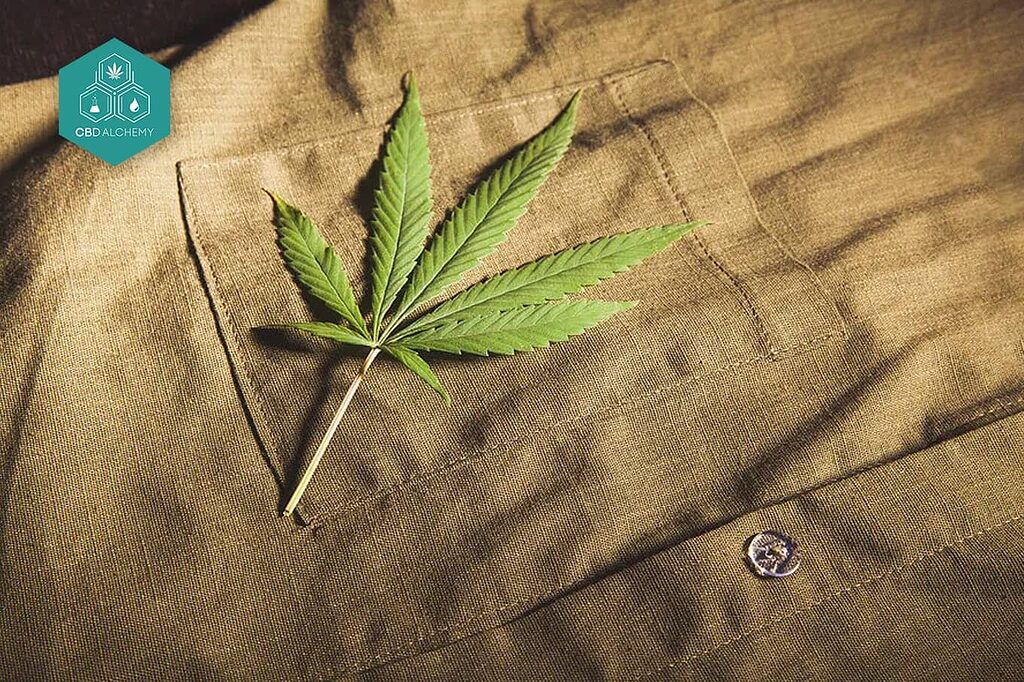
Hemp fiber has been used for textiles for thousands of years, and for good reason. It offers several advantages over other natural and synthetic fibers:
- Durability: Hemp fibers are among the strongest natural fibers known, making hemp textiles exceptionally long-lasting.
- Breathability: Hemp fabric is highly breathable, keeping the wearer cool in summer and warm in winter.
- UV Resistance: Hemp naturally resists UV light, helping to protect the wearer from harmful sun rays.
- Antimicrobial Properties: Hemp has natural antimicrobial properties, making it resistant to mold, mildew, and bacteria.
- Eco-Friendly: Hemp requires less water and fewer pesticides to grow compared to cotton, making it a more sustainable choice.
Hemp fiber can be used to create a wide range of textiles, including:
- Clothing: From t-shirts and jeans to high-end fashion pieces, hemp clothing is becoming increasingly popular.
- Accessories: Bags, hats, and shoes made from hemp are durable and eco-friendly alternatives to synthetic materials.
- Home Textiles: Hemp can be used for bedding, towels, and upholstery fabrics.
- Industrial Textiles: Hemp’s strength makes it suitable for industrial applications like canvas, rope, and geotextiles.
The process of turning hemp into fabric involves several steps:
- Harvesting: Hemp plants are cut and left in the field to ret (partially decompose).
- Retting: This process allows bacteria and moisture to break down the pectin that binds the hemp fibers to the woody core.
- Breaking: The stalks are broken to separate the fibers from the woody core.
- Scutching: The broken stalks are beaten to remove any remaining woody particles.
- Hackling: The fibers are combed to align and separate them.
- Spinning: The fibers are spun into yarn.
- Weaving or Knitting: The yarn is woven or knitted into fabric.
While hemp textiles offer many benefits, there are challenges in processing hemp fiber, which can be more labor-intensive than processing cotton. However, advancements in technology are making hemp textile production more efficient and cost-effective.
Hemp in Construction and Building Materials
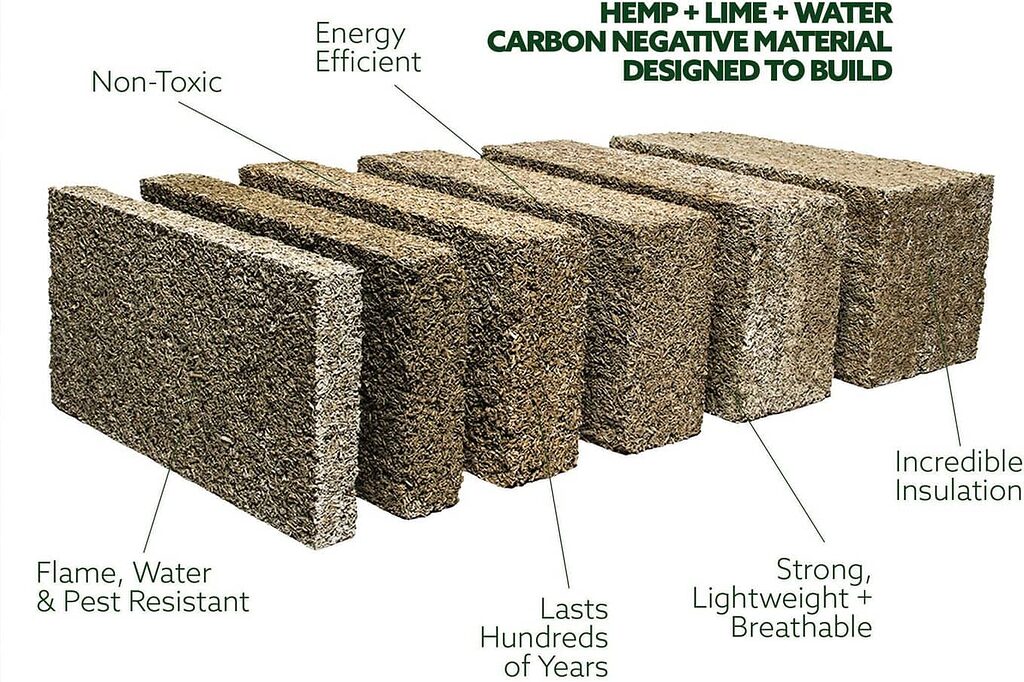
Hemp’s role in construction is gaining significant attention due to its potential to create sustainable, energy-efficient buildings. The main hemp-based building material is hempcrete, but there are other applications as well:Hempcrete:
Hempcrete is a biocomposite material made from the inner woody core of the hemp plant (known as the hurd or shiv) mixed with a lime-based binder. It offers several advantages:
- Excellent Insulation: Hempcrete provides superior thermal insulation, reducing energy costs for heating and cooling.
- Moisture Regulation: It’s breathable and can regulate humidity, creating a healthier indoor environment.
- Carbon Negative: Hempcrete continues to absorb CO2 throughout its lifetime, making it a carbon-negative material.
- Fire Resistant: Unlike many conventional building materials, hempcrete is naturally fire-resistant.
- Pest Resistant: The lime content in hempcrete makes it unattractive to pests.
Hempcrete can be used for walls, floors, and roofs. It’s typically used as an infill material in timber-frame construction rather than as a load-bearing material.Other Hemp-Based Building Materials:
- Hemp Fiberboard: Similar to medium-density fiberboard (MDF) but made from hemp fibers, offering a formaldehyde-free alternative.
- Hemp Insulation: Made from hemp fibers, this provides an eco-friendly alternative to fiberglass insulation.
- Hemp Plaster: A natural, breathable alternative to conventional plasters.
- Hemp Concrete Blocks: Precast blocks made with hempcrete, offering easier installation than cast-in-place hempcrete.
The use of hemp in construction aligns with the growing trend towards green building practices. As the demand for sustainable construction materials increases, hemp-based building materials are likely to become more mainstream.However, there are challenges to overcome, including the need for standardization in the industry and education for builders and architects on how to work with these materials. Despite these challenges, the potential of hemp in construction is significant, offering a path towards more sustainable and healthier buildings.
Hemp Oil: Uses in Health and Wellness
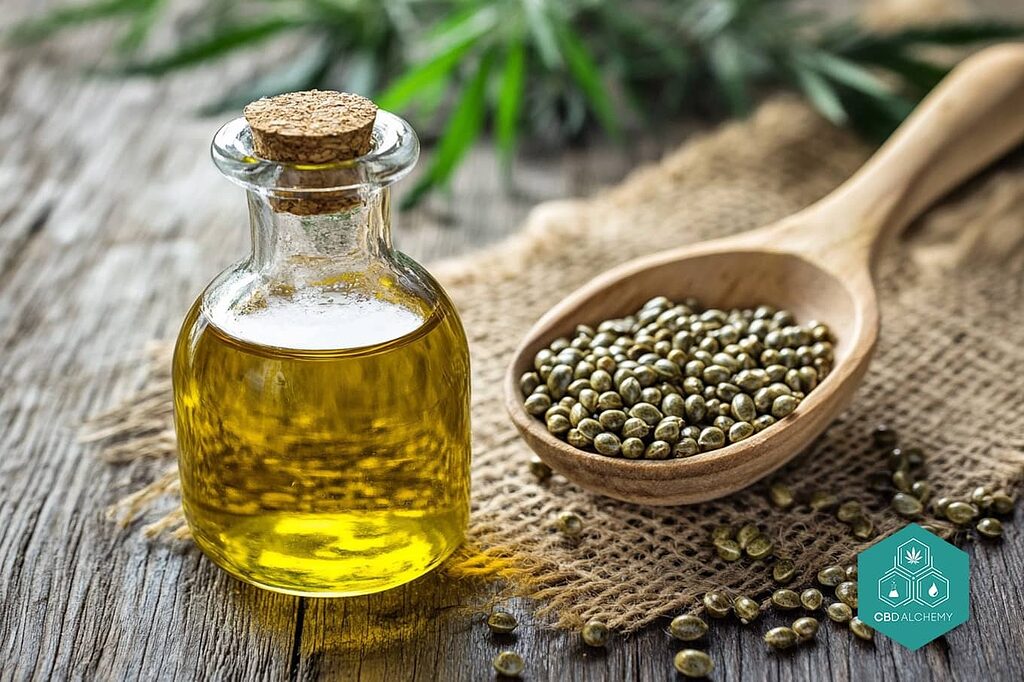
Potential Therapeutic Benefits of Hemp Oil
Hemp oil, particularly CBD oil derived from hemp, has gained significant attention in the health and wellness sector due to its potential therapeutic benefits. While research is ongoing, several potential benefits have been identified:
- Pain Management: CBD, a major component of hemp oil, has shown promise in managing chronic pain conditions. It may help reduce inflammation and interact with neurotransmitters.
- Anxiety and Depression: Some studies suggest that CBD may have anxiolytic (anti-anxiety) and antidepressant effects, potentially offering a natural alternative for mental health management.
- Neuroprotective Properties: Research indicates that CBD may have neuroprotective properties, potentially beneficial for conditions like multiple sclerosis and epilepsy.
- Sleep Improvement: CBD may help improve sleep quality, particularly for individuals with sleep disorders or anxiety-related sleep issues.
- Skin Health: The anti-inflammatory properties of hemp oil may benefit skin conditions like acne, psoriasis, and eczema.
- Heart Health: Some studies suggest that CBD may help lower high blood pressure, a risk factor for heart disease.
- Cancer-Related Symptoms: While not a cure, CBD may help alleviate symptoms related to cancer treatment, such as nausea and pain.
It’s important to note that while these potential benefits are promising, more research is needed to fully understand the effects of hemp oil and CBD. Always consult with a healthcare professional before starting any new supplement regimen.
How to Use Hemp Oil in Your Daily Routine
Incorporating hemp oil into your daily routine can be done in several ways:
- Sublingual Administration: Place a few drops of CBD oil under your tongue and hold for 30-60 seconds before swallowing. This method allows for quick absorption into the bloodstream.
- Topical Application: Hemp oil can be applied directly to the skin or mixed with your favorite lotion or cream for potential skin benefits.
- Edibles and Beverages: Add hemp oil to your food or drinks. Remember that it has a distinct taste, so start with small amounts.
- Capsules: For those who don’t like the taste of hemp oil, capsules offer a convenient, tasteless alternative.
- Vaping: While controversial, some people choose to vape CBD oil for quick effects. However, the long-term safety of vaping is still under study.
When using hemp oil, consider the following tips:
- Start Low and Go Slow: Begin with a low dose and gradually increase as needed.
- Consistency is Key: Regular use may be more beneficial than sporadic application.
- Quality Matters: Choose high-quality, third-party tested products from reputable sources.
- Be Aware of Interactions: Hemp oil may interact with certain medications, so consult your healthcare provider if you’re on any prescription drugs.
Remember, while hemp oil is generally considered safe, it’s not regulated by the FDA for treating medical conditions. Always approach its use as a supplement to a healthy lifestyle rather than a cure-all solution.
Skincare and Cosmetics: The Role of Hemp Oil
Hemp oil, which is extracted from the seeds of the hemp plant, is a popular ingredient in skincare and cosmetics due to its numerous benefits for the skin. Hemp oil is rich in essential fatty acids, including omega-3 and omega-6 fatty acids, which are important for maintaining healthy skin.
One of the main benefits of hemp oil for skincare is its ability to moisturize and hydrate the skin. Hemp oil is rich in emollients, which help to lock in moisture and soothe dry, irritated skin. This makes it an excellent ingredient for products aimed at dry skin, such as moisturizers and body lotions.
Hemp oil is also anti-inflammatory, which makes it an effective ingredient for products aimed at reducing redness and irritation. This makes it an excellent ingredient for products aimed at acne-prone skin, such as spot treatments and cleansers.
In addition to its moisturizing and anti-inflammatory properties, hemp oil is also rich in antioxidants, which help to protect the skin from damage caused by free radicals. This makes it an excellent ingredient for products aimed at anti-aging, such as serums and eye creams.
Overall, hemp oil is a versatile ingredient that can be used in a variety of skincare and cosmetic products, from moisturizers and body lotions to spot treatments and anti-aging serums.
Environmental Benefits of Hemp Cultivation
Hemp’s Role in Sustainable Agriculture
Hemp cultivation offers numerous environmental benefits, positioning it as a crop with significant potential for sustainable agriculture:
- Soil Improvement: Hemp is a phytoremediator, meaning it can clean up toxic soils by absorbing heavy metals and other pollutants. This property makes hemp valuable for restoring contaminated lands.
- Carbon Sequestration: Hemp plants are efficient at capturing and storing carbon dioxide from the atmosphere. One hectare of industrial hemp can absorb up to 15 tonnes of CO2, making it more effective at carbon sequestration than many tree species.
- Reduced Water Usage: Compared to crops like cotton, hemp requires significantly less water to grow. It’s naturally resistant to many pests, reducing the need for water-intensive pesticide applications.
- Soil Conservation: Hemp’s deep root system helps prevent soil erosion and improves soil structure. After harvesting, the remaining roots decompose, adding valuable nutrients back into the soil.
- Biodiversity Support: Hemp fields can provide habitat and food for wildlife, including birds and insects, supporting local ecosystems.
- Crop Rotation Benefits: Including hemp in crop rotation cycles can break pest and disease cycles, reducing the need for chemical interventions in subsequent crops.
Hemp as a Renewable Resource for Various Industries
Hemp’s versatility makes it a valuable renewable resource across multiple industries:
- Textiles: Hemp fiber can replace water-intensive cotton and petroleum-based synthetic fibers, offering a more sustainable option for clothing and other textiles.
- Paper Production: Hemp can produce more paper per acre than trees and can be harvested annually, unlike trees which take years to mature. Hemp paper is also more durable and can be recycled more times than wood-based paper.
- Bioplastics: Hemp-based plastics are biodegradable and can replace petroleum-based plastics in many applications, from packaging to car parts.
- Construction Materials: Hempcrete and other hemp-based building materials offer sustainable alternatives to traditional construction materials, with added benefits like improved insulation and carbon sequestration.
- Biofuel: Hemp seeds can be used to produce biodiesel, while the stalks can be processed into ethanol or methanol, offering renewable energy alternatives.
- Food and Nutrition: Hemp seeds and oil provide sustainable sources of protein and essential fatty acids, contributing to food security and nutrition.
- Cosmetics and Personal Care: Hemp oil is used in various personal care products, offering a natural alternative to synthetic ingredients.
The environmental benefits of hemp extend beyond its cultivation. Products made from hemp are often biodegradable and recyclable, contributing to a circular economy and reducing waste. As industries seek more sustainable practices, hemp’s role as a versatile, renewable resource is likely to grow, potentially revolutionizing various sectors with eco-friendly alternatives.
Economic Benefits of Hemp Cultivation and Use
Hemp is a highly versatile crop that can be used in a variety of applications, from food and beverages to skincare and cosmetics. In addition to its numerous uses, hemp is also a highly profitable crop, with a growing market demand for hemp-based products.
One of the main economic benefits of hemp cultivation is its potential to create jobs and stimulate local economies. Hemp is a labor-intensive crop that requires manual labor for planting, harvesting, and processing, which can create employment opportunities for rural communities.
In addition to its potential to create jobs, hemp is also a highly profitable crop, with a growing market demand for hemp-based products. The global hemp market is expected to grow significantly in the coming years, driven by increasing demand for hemp-based products, such as hemp seed oil, hemp protein powder, and hemp-based textiles.
Hemp is also a highly sustainable crop, requiring less water and pesticides than many other crops. This makes it an attractive option for farmers looking to reduce their environmental impact and improve their bottom line.
Overall, hemp is a highly versatile and profitable crop that can be used in a variety of applications, from food and beverages to skincare and cosmetics. Its potential to create jobs, stimulate local economies, and provide a sustainable source of income makes it an attractive option for farmers and entrepreneurs looking to capitalize on the growing demand for hemp-based products.
Frequently Asked Questions – hemp what is it used for
What exactly is hemp and how does it differ from marijuana?
Hemp is a variety of the Cannabis sativa plant that contains less than 0.3% THC, making it non-intoxicating. Unlike its cousin marijuana, hemp is grown primarily for its fiber, seeds, and oils. The 2018 Farm Bill in the US legalized hemp cultivation, opening up new opportunities for farmers and businesses in the hemp market.
Can you tell me about the nutritional benefits of hemp seeds?
Hemp seeds, often called hemp hearts when hulled, are a nutritional powerhouse. They’re a complete protein source, containing all nine essential amino acids our bodies need. These little seeds are packed with essential fatty acids, healthy fats, fiber, vitamins, and minerals. Adding hemp seeds to your diet is an easy way to boost your overall nutrition.
How can I incorporate hemp seeds into my daily meals?
There are tons of ways to enjoy hemp seeds! Sprinkle them on your morning yogurt or oatmeal, toss them into salads for a nutty crunch, or blend them into smoothies for a protein boost. You can even use hemp seed protein powder in baked goods or try hemp milk as a dairy alternative. It’s super easy to add these nutritious seeds to your everyday meals.
What health benefits might I get from eating hemp seeds and using hemp seed oil?
Consuming hemp seeds and hemp seed oil could do wonders for your health. The essential fatty acids may help reduce inflammation and support heart health. There’s also a special fatty acid called gamma-linolenic acid (GLA) that might help balance hormones and improve skin health. The protein and fiber in hemp seeds could aid digestion and weight management. Some research even suggests hemp seed oil might help lower blood pressure.
How is hemp fiber being used in the textile industry?
Hemp fiber is making waves in the textile world. It’s incredibly strong, durable, and breathable, making it perfect for all sorts of products from clothing and accessories to industrial textiles. Unlike synthetic fibers, hemp is eco-friendly and biodegradable. More and more consumers are looking for sustainable options, so hemp’s popularity in textiles is on the rise.
What’s the difference between hemp seed oil and CBD oil?
While both come from the hemp plant, they’re quite different. Hemp seed oil is pressed from the seeds and is rich in essential fatty acids. It has a nutty flavor and is great for cooking or skincare. CBD oil, on the other hand, is extracted from the flowers and leaves of the hemp plant and contains cannabidiol (CBD). They have different uses and properties, so it’s important to know which one you’re getting.
How are people using industrial hemp in construction?
Industrial hemp is becoming a star in sustainable construction. One of the coolest products is hempcrete, made from the woody core of hemp plants mixed with lime. It’s used as an eco-friendly building material. Hemp fiber is also great for insulation. These hemp-based materials offer excellent insulation, fire resistance, and can even help regulate humidity in buildings.
What are the environmental perks of growing hemp?
Hemp is a farmer’s dream when it comes to sustainability. It grows quickly, needs less water than many other crops, and can actually improve soil health. It’s fantastic at capturing carbon dioxide from the air, making it a climate-friendly crop. Hemp can also be used in crop rotation to naturally break pest cycles, reducing the need for pesticides. As we look for more sustainable alternatives, hemp’s versatility makes it a great replacement for many petroleum-based products.
How is the food industry using hemp?
The food industry is getting creative with hemp! You’ll find whole hemp seeds, hulled seeds, and hemp protein powder in all sorts of products. Hemp seed oil is great for cooking and as a nutritional supplement. There’s even hemp flour for gluten-free baking and hemp milk as a plant-based dairy alternative. These hemp products are not only nutritious but also cater to various dietary needs, including vegetarian, vegan, and gluten-free diets.
What’s happening in the hemp market right now?
The hemp market is booming! Since its legalization in many countries, we’ve seen growing demand for hemp products across various industries – from food and textiles to construction and personal care. The CBD market, which uses hemp as a source, has exploded in popularity. As researchers continue to explore hemp’s potential and new applications are discovered, we can expect the hemp market to keep growing and evolving.
